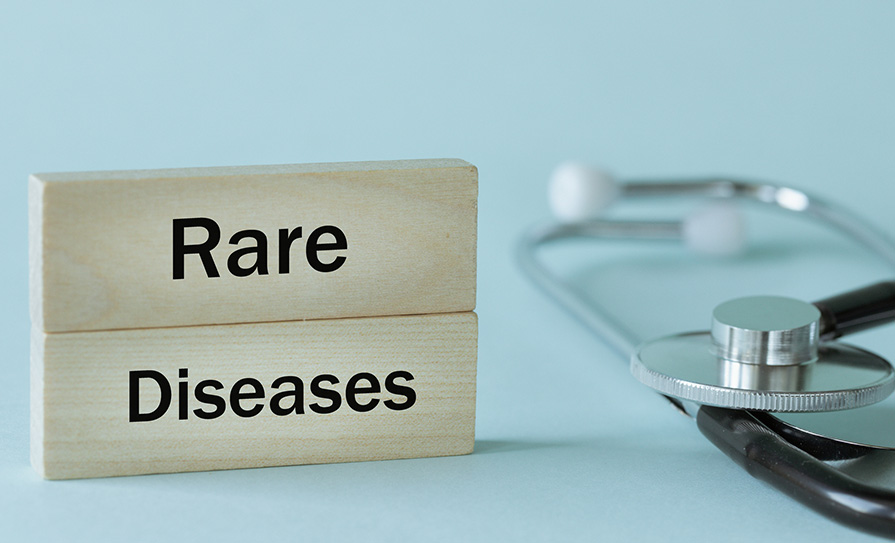Valerie Ryan speaks to Chair of the Forum of Irish Postgraduate Medical Training Bodies Mr Kenneth Mealy about what its new strategic framework means for trainees and trainers
Professional educators on hospital sites, expansion of the international medical graduate programme, and identification of core postgraduate training competencies are among the areas addressed in the new 10- year strategic framework drawn up by the Forum of Irish Postgraduate Medical Training Bodies.
Launched last November, the framework has been formally approved and signed off by the country’s 17 postgraduate medical training bodies. The agreed blueprint maps out major objectives and aims to ensure sufficient flexibility so implementation can occur over time as circumstances change and develop. The new framework has articulated an agreed resolve by the training bodies “to guide the strategic development of postgraduate medical education and training in the decade to 2030”.
Chair of the Forum Mr Kenneth Mealy, who is a Consultant Surgeon, Chair of the National Office of Clinical Audit governance board and former President of the RCSI, spoke to the Medical Independent (MI) about the aims of the framework.
Under the 10-year strategy, five overarching goals are divided into 27 major objectives allied to corresponding priority actions. The objectives are also aligned with identified workforce planning needs and major policy initiatives across the health system in Ireland.
Support
The first workstream in the strategy targets improvements in training for trainees and trainers. “Every single training body is very clear that the health and wellbeing of trainees needs to be looked at and monitored and supported in a way that we have never done before,” Mr Mealy said.
The Your Training Counts surveys, published by the Medical Council, have repeatedly indicated the dissatisfaction of trainees, which Mr Mealy said the training bodies have taken very seriously.
The only way to retain trainees on the training programmes is to support them. Mr Mealy said this was not only to provide them with a good educational experience, but to give trainees the tools they needed in modern aspects of clinical practice. These include communication skills, human factors, leadership and team building, and management skills.
“We didn’t have those 10 years ago, but we do now because we know that those are areas trainees and young doctors find really stressful so we need to give them the educational tools they require to practise satisfactorily,” said Mr Mealy.
New options, which did not exist a number of years ago, are now part of the training landscape, such as less-than-full-time training, or where trainees require time-off and return to training. All trainees who choose these pathways need to be supported in the future and be backed by the training bodies, according to Mr Mealy
He stressed that this work on improving training processes was being done against the background of a challenged health service, “dysfunctional” due to the bed capacity crisis in practically every hospital. There has also been the unprecedented impact of the Covid-19 pandemic, while Mr Mealy described the 2021 cyberattack as a “nightmare”.
He underscored how problematic it is to train doctors under such constraints, factoring in European working time requirements and the health and wellbeing of the medical profession. Training bodies were looking to online training and off-site training facilities and methods. The Forum has had discussions on educational opportunities with stakeholders along those lines.
Professional educators
While work on the strategy was only beginning, the HSE National Doctors Training and Planning (NDTP) unit had agreed to fund a number of sites to put professional educators in place as part of the focus on professionalising the training process.
Professional educators are intended to provide oversight and responsibility for all trainees, across the different training bodies and all specialties, at any one hospital or Hospital Group.
They would make sure the educational needs of trainees in all specialties were appropriate, as well as the time commitments of trainers.
“Trainers need protected time,” Mr Mealy said. He added that most of the training bodies now have a process of training the trainer. “I have no doubt that it will become mandatory, within Medical Councils standards, in years to come.” There was agreement across all the training bodies supporting the introduction of professional educators to strengthen the wellbeing and quality assurance process.
All of us understand we cannot live in silos anymore for training doctors
International medical graduate programme
In the short-term, the other major workstream is the potential for expanding the international medical graduate training programme. The training bodies believe this would be of great benefit to doctors pre-selected by training organisations in their own countries and mainly coming from Pakistan and Sudan.
However, Mr Mealy said there were ethical considerations in view of global responsibilities, given that recruiting doctors in training from low-to-middle-income countries had a profound effect on the healthcare of those regions.
He pointed out that Ireland relied on doctors from other countries coming in and supporting the workforce and that this country was privileged to have them. This reliance is associated with poor retention of Irish-trained doctors. “The irony doesn’t escape any of us. We qualify more doctors in this country per head of population than any other country in the OECD,” noted Mr Mealy.
Reducing duplication
With so much duplication throughout many common processes, Mr Mealy highlighted the potential to share best practice and for collective action among the postgraduate training bodies in engaging with stakeholders and, ultimately, strengthening the training programmes.
He pointed out training bodies had very similar standards for hospital sites and suitability for training; accreditation of sites for training was another common interest between NDTP, the different training bodies, and the Medical Council. The Medical Council regulated the training bodies in terms of the standards for the training programmes, but they also regulated standards that were provided by the hospital sites for training. The present system saw “the training bodies turning up in sequence at a hospital and then the Medical Council coming along”.
Agreeing a shared series of processes could ease the burden on the hospitals and make the process more efficient, with the Forum providing a venue to hold tripartite meetings with the Medical Council and with the NDTP; and a site for the training bodies to hold collective meetings and discuss those issues.
“I’d be very disappointed if, over the next couple of years, we can’t come to a common accreditation process that makes the whole process much more efficient and stops a lot of the duplication,” said Mr Mealy.
However, he added the detail of such a process needed to be worked out. While Mr Mealy said there might have been a lack of opportunity to collaborate in the past, there was huge willingness to share areas of common interest among stakeholders to support each other. “All of us understand we cannot live in silos anymore for training doctors.”
Mr Mealy also highlighted other common areas for the training bodies. “We are keen to design a common curriculum in terms of core clinical skills, and knowledge that trainees right across the training bodies need to understand….
“The different training bodies provide their own training in this regard. We’re not saying that there has to be one common training scheme to look at all of that. What we really want to say is that there should be a whole series of standards and each of the training bodies should be able to subscribe to those standards within their own training programmes.”













Leave a Reply
You must be logged in to post a comment.